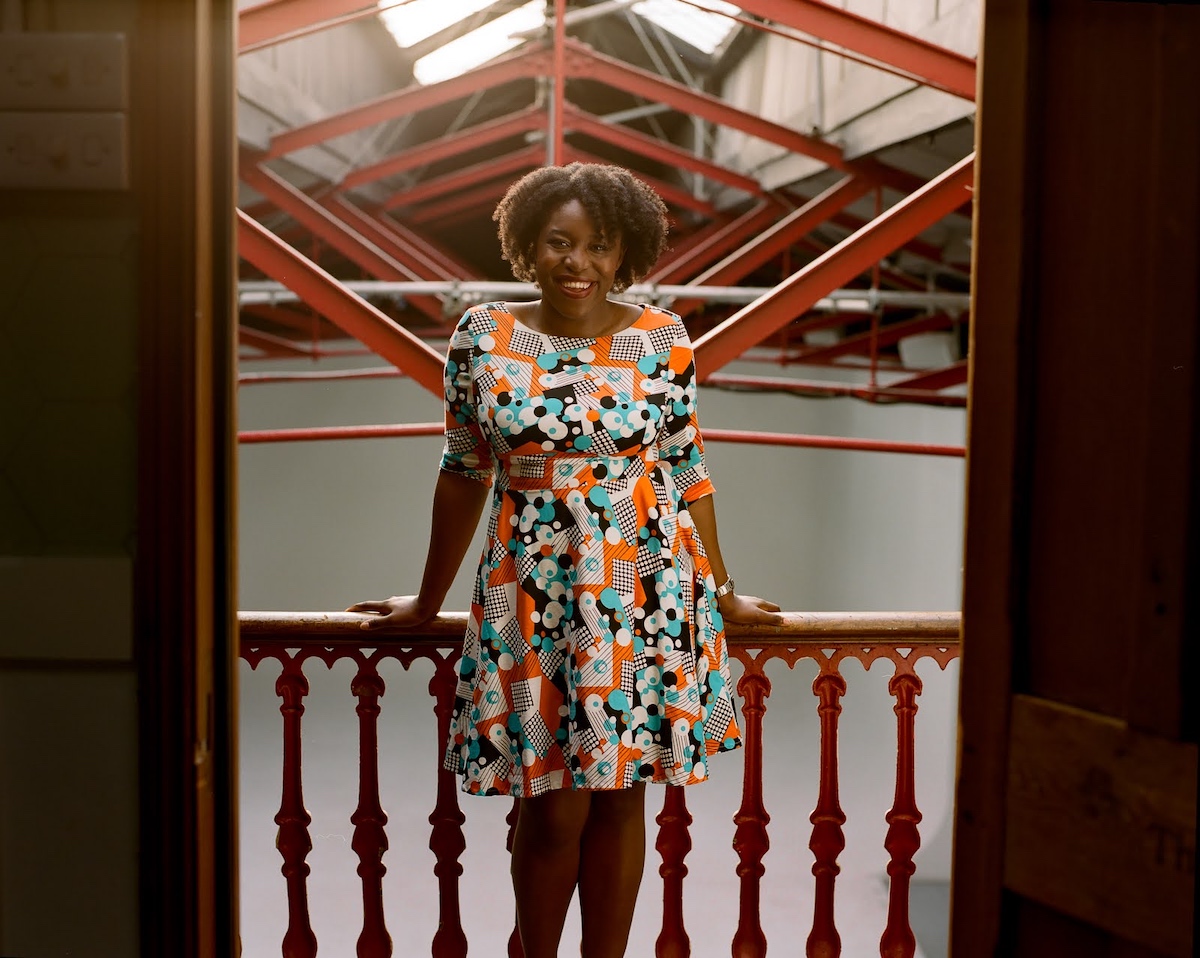In the mid 2000s, I was in awe of innovative new music tech companies like Oakland-based radio streaming platform Pandora and UK-based listening tracker, Last.fm and jealous of Europe’s earlier access to Stockholm’s streaming service, Spotify. I saw what I wanted to do but saw no way to get there.
As a Baltimore native, I’ve seen firsthand how the city has contributed to shaping the music industry. Legends like Billie Holiday, Frank Zappa and Tupac Shakur all hail from Baltimore, and the city continues to be a hotbed of musical talent with artists like All Time Low, Future Islands and Beach House. But despite this rich musical history, Baltimore is often overlooked when it comes to music technology and entrepreneurship. Having navigated both the music and tech industries, I recognize the uphill battle anyone not in music and tech hubs have to starting and developing a music career.
Through continuous Craigslist searches, having a very active MySpace account, and a lot of cold emails I was able to get experience in music booking shows, running artist street teams and working for Baltimore-based venues and tech startups in the entertainment space. While I made it work, finding and creating these opportunities took so much effort. Even as I set out to college, I had to create my own major and curriculum in Music Entrepreneurship from the University of Maryland, Baltimore County (UMBC) because no Baltimore school offered an official Music Business program.
As much as I loved my hometown, I recognized that my aspirations were bigger than what Baltimore could offer me.
In the article “Block-By-Block: Breaking Down Baltimore’s Unique Music Scene,” Jacob Lapidus explores the unique music scene of Baltimore and the reasons behind the lack of a traditional music industry in the city.
“Baltimore’s proximity to Washington, D.C. (30–40 minutes southwest) and New York City (3–4 hours north) serves as both a blessing and curse,” he writes. “The access to creative and professional resources, as well as occasional gigs, is a tremendous asset to individual artists. However, for the community as a whole, the brain drain that ensues from artists leaving the local scene and transplanting to larger regional, national, or international hubs can cripple the momentum of niche cultural movements.”
While I encourage everyone to see the world, it shouldn’t be mandatory to leave home to pursue your dreams.Christine Osazuwa Measure of Music
He continues: “[A significant contribution] to the aforementioned brain drain is Baltimore’s lack of music-specific industry professionals. When an artist gaining sizable traction in Baltimore finds themself in need of a manager, the chances are that most capable or experienced managers have already moved to these larger hubs.”
In 2017, I was part of that brain drain. I moved abroad — first to Stockholm and then to London, where I went on to hold music data roles for Universal Music Sweden and Warner Music Group, respectively before leaving to join music tech startups. Of course, I recognize that not everyone has the privilege or even the desire to leave their hometown, yet alone their country and moreover, cities like Baltimore can’t afford to lose their valuable talent.
That’s why I created Measure of Music, a virtual music, tech and data conference and hackathon that takes place for the third year from Feb 24 through 26. The free, weekend-long event features networking, startup pitches, talks, keynotes, and panels from artists and music industry execs, while teams create data-driven music projects to present to an audience of peers, and tech and music industry execs. 2023 will be our biggest year yet with over 2,000 registrations. This year, over 70 countries are represented in the registrations.
I wanted to create an event that would provide a platform for underrepresented groups in the music industry to connect, learn and create. We’ve had hackathon participants from all age groups, experience level, and backgrounds, including many who were laid off during the pandemic and looking to pivot their careers, which was my catalyst to launch the event.
Our speakers have been majority minority in gender and race every year and come from acclaimed companies such as Spotify, TikTok, SoundCloud, Warner Music Group, Genius and Boomplay. By bringing together music and tech innovators from all over the country (and the world), we’re helping to create a more robust music tech ecosystem that can benefit cities like Baltimore, developing a pipeline of talent that can help fuel innovation in the industry, creating a platform for emerging voices and fresh perspectives, providing an alternative to the traditional paths of internships and entry-level jobs, and allowing a way forward for career changers at all levels in their career.
Measure of Music gives opportunities to everyone wanting to be in music tech a place to start and hopefully it means that one day they have more options. While I encourage everyone to see the world, it shouldn’t be mandatory to leave home to pursue your dreams.
Before you go...
Please consider supporting Technical.ly to keep our independent journalism strong. Unlike most business-focused media outlets, we don’t have a paywall. Instead, we count on your personal and organizational support.
Join our growing Slack community
Join 5,000 tech professionals and entrepreneurs in our community Slack today!

The person charged in the UnitedHealthcare CEO shooting had a ton of tech connections

From rejection to innovation: How I built a tool to beat AI hiring algorithms at their own game

Where are the country’s most vibrant tech and startup communities?

